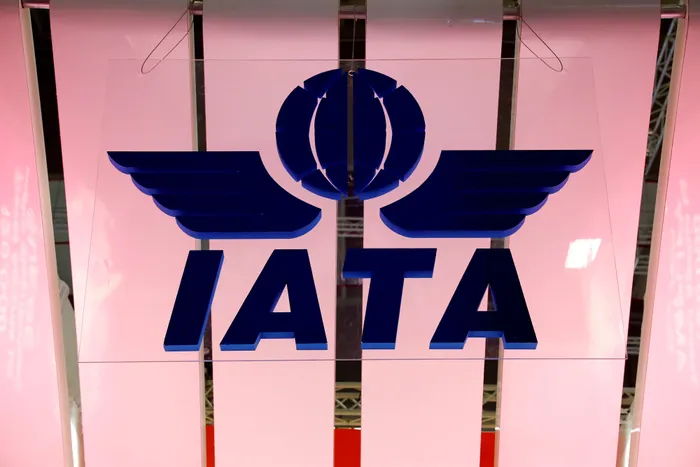Trade tensions threaten global prosperity: IATA’s urgent call to action
International Trade

IATA this week issued a clarion call for immediate action, emphasising that “current trade tensions are deeply concerning.
Image: File/Independent Newspapers
AMID rising global trade tensions, the air cargo industry finds itself at a critical juncture, challenged to maintain the flow of goods that underpin economic prosperity.
THE International Air Transport Association (Iata) this week issued a clarion call for immediate action, emphasising that: “Current trade tensions are deeply concerning. Trade drives prosperity. The more the world trades, the better off we all are,” according to Brendan Sullivan, Iata’s global head of cargo, at the recently concluded 18th World Cargo Symposium (WCS) in Dubai.
These tensions are also reshaping global credit conditions, as highlighted in a recent S&P Global Ratings report. “Trade tensions are threatening hitherto favourable credit conditions for most borrowers,” the report warned, citing the US government’s tariff announcements on April 2 and the escalating trade conflict with China. “If the paused US tariffs are ultimately implemented in full, the economic fallout would be broad and deep.”
The ramifications resonate deeply within South Africa’s economy, which heavily relies on global supply chains, particularly in sectors like mining and agriculture. Recent analyses from the SA Reserve Bank indicate that dwindling trade relations — coupled with tightening credit conditions — could spell disaster for local industries, ultimately jeopardising jobs and economic stability.
As the backbone of international trade logistics, air cargo is crucial for maintaining supply chain resilience amidst these tensions. Iata’s Sullivan insists: “Whatever the resolution of current trade tensions is, we know that air cargo will be there to deliver the goods people need and want.” His remarks underscored the vital role of air transport in not merely surviving these challenges but thriving while facilitating commerce across borders.
However, financial market volatility adds another layer of complexity. “Market volatility and increasing investor risk aversion pose the most imminent risks to credit in this environment. Borrowers are having to pay up for financing and, worse, some lower-rated borrowers could be shut out of the capital markets,” S&P Global Ratings credit analyst Alexandre Birry said.
In addition to trade facilitation, Iata spotlighted the importance of safety in air cargo operations, particularly concerning the transport of lithium batteries. “Shipments of lithium batteries are growing in volume. With that come increased risks associated with undeclared or mis-declared goods,” Sullivan cautioned. He urged governments to bolster oversight as the industry navigates complex supply chain challenges exacerbated by trade disputes.
South Africa, grappling with regulatory pressures, is expected to prioritise safety to protect both consumers and its international trade partnerships, reinforcing its integrity in the global marketplace.
In the wake of heightened security incidents involving air shipments, Iata has called for a unified approach to aviation security. “Recent security incidents highlight the need for better coordination among governments. Aviation security cannot be built on fragmented measures,” Sullivan said, putting emphasis on the harmonisation of global standards as essential to restoring confidence among traders and businesses alike.
This acknowledgement ties back to South Africa’s imperative to align security measures with international practices, ensuring that its trade routes remain secure amid an unpredictable geopolitical climate, one where “unresolved trade tensions could have a visible effect on credit quality,” as S&P Global Ratings warns.
Recognising the urgent need for digital transformation, Sullivan emphasised the adoption of ONE Record, Iata’s standard for end-to-end digital data exchange. He said: “ONE Record is a foundational shift in how we share, manage, and trust data across the supply chain.” This initiative is crucial in an era of trade uncertainty, where efficient and transparent operations can give South African companies a competitive edge in global markets, especially as “widening spreads could keep all-in financing costs elevated”.
While grappling with trade tensions, the air cargo industry has not lost sight of its sustainability commitments. Iata highlighted the growing momentum behind Sustainable Aviation Fuel (SAF), reiterating that strong government support was needed to scale up production and reduce costs. “We are committed to net-zero carbon emissions by 2050. But the ramp-up of SAF — our strongest lever — has been disappointing,” Sullivan lamented.
Increasing demand for green practices resonates strongly in South Africa, where regulatory frameworks can either enhance or hinder progress toward sustainable transport solutions that align with international standards, even as “tariffs slow economic activity and reignite inflation, muddying the waters for central bank monetary policy.”
As global trade dynamics shift and tensions escalate, the air cargo sector stands as both a challenge and an opportunity for countries such as South Africa. Iata’s urgent message is clear: Collaborative action is essential to ensure that air cargo can continue to facilitate trade and bolster economic stability.
The time for governments and industry leaders to work hand-in-hand is now, to navigate these turbulent waters and cultivate a landscape where trade can flourish in the face of adversity. In this interconnected world, ensuring the free flow of goods is not just a matter of policy; it’s imperative for the future of global prosperity.
